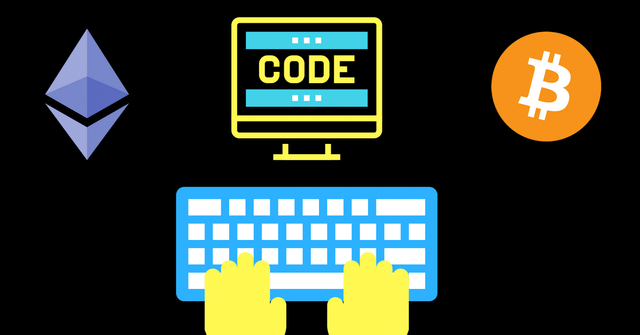Programming languages used in Blockchain Development
A blockchain is a computerized ledger of records that is orchestrated in pieces of information called blocks. These blocks at that point interface with each other through a cryptographic approval known as a hashing function. Connected together, these blocks shape an unbroken chain — a blockchain.
The reason that this sort of information structure is valuable for things like digital forms of currency is decentralization, which means the records inside this chain aren't put away in any single area, are available by everybody, and are entrenched by any one gathering.
The blockchain innovation is inconceivably interesting. It won't be fantastical to think about a future which will be shaped completely on it. Anyway, what do you have to learn keeping in mind the end goal to begin creating the blockchain? Which languages will give you the edge? In this guide, we will encounter a portion of the more significant ones.
Language 1: C++:
How about we begin with the grandfather of all, the evergreen C++. C++ was made by Bjarne Stroustrup as an augmentation of the C language. C++ was intended to have the adaptability and productivity of the C yet with some real contrasts. The greatest distinction amongst C and C++ is that while C is process-arranged, C++ is question oriented.
This means, in C++, the functions and data are wrapped into one perfect little bundle called "objects" which implies that once an object is made, it can without much of a stretch be called and reused in different projects, which significantly lessens coding time.
For what reason do people still use C++ for coding? No ifs ands or buts there are much more fabulous languages now, for what reason do people still request retreating to C++? Why is the cryptocurrency blockchain coded on C++?
All things considered, C++ has certain highlights that makes it extremely engaging.
Characteristics of C++
- Memory Control
- Threading
- Move Semantics
- Compile Time Polymorphism
- Code Isolation
- Maturity
Language 2: Javascript:
C++ goes about as a foundational blockchain programming language. At that point, JavaScript can advance in.
JavaScript is one of the key programming language behind World Wide Web Content Production. It's ordinarily used to make intuitive site pages.
In case you're utilizing C++ for your essential cryptographic programming, JavaScript will help outline your blocks. Some of this needs to do with what you require the blocks to achieve.
Cryptographic Hash Functions:
Blockchains are basically a celebrated rundown. One since quite a while ago, connected rundown.
What makes them unique is that they're practically changeless. This is accomplished through a system called hashing. Each piece contains a hash pointer associating it to the block before it.
In the event that somebody messed with one block's information, it would likewise change the hash, along these lines solidifying the whole chain. Be that as it may, solidifying the entire chain isn't conceivable. What's more, accordingly, unchanging nature.
This is the thing that JavaScript can give.
Language 3: Python:
Guido van Rossum, a Dutch software engineer, made Python in 1991. Python depends on a straightforward logic: Simplicity and Minimalism. One of the more prominent ways that they included simplicity into their language is by utilizing blank areas to mean code block rather than wavy brackets or words.
To make a short story shorter, Python is the language that you use to code a blockchain without utilizing 10 miles worth of code.
Though C++ requires some blend of JavaScript, you can assemble a simple blockchain totally out of Python. In any case, things get more confounded once you include things like Proof of Work.
Language 4: Solidity:
At last, we come to Solidity.
For any individual who needs to figure out how to make DAPPs (Decentralized Applications) or get into the ICO gam, learning Solidity is a flat out must.
Solidity was produced by Gavin Wood, Christian Reitwiessner, Alex Beregszaszi, Yoichi Hirai and a few previous Ethereum key supporters to enable composing savvy contracts on blockchain stages, for example, Ethereum.
Solidity is an intentionally thinned down, loosely-written language with a syntax fundamentally the same as ECMAScript (Javascript).
Conclusion:
In this article we have covered four languages for blockchain coding that are utilized as a part of developing in and around the blockchain. In all actuality there are numerous more languages that you can conceivably utilize. On the off chance that you are a developer, at that point the possible outcomes for you are genuinely unending. As the world turns out to be increasingly decentralized and blockchain turns out to be increasingly standard, the future for you is certainly boundless.

Great article, keep up the good work
Thanks! :)
Congratulations @emmad! You received a personal award!
Click here to view your Board
Congratulations @emmad! You received a personal award!
You can view your badges on your Steem Board and compare to others on the Steem Ranking
Vote for @Steemitboard as a witness to get one more award and increased upvotes!